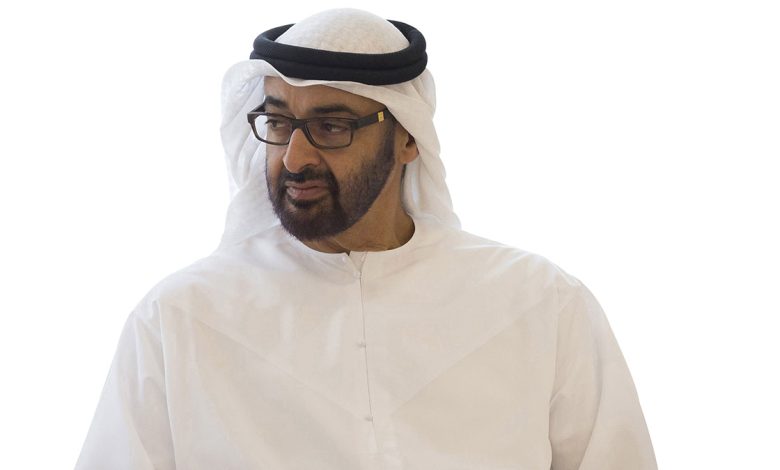Sheik Mohammed’s efforts create Arab solutions to regional crises

A fraternal Arab meeting that included Sheik Mohammed bin Zayed Al Nahyan, Crown Prince of Abu Dhabi, President Abdel Fattah el-Sisi, King Abdullah II of Jordan, Iraqi Prime Minister Mustafa Al-Kadhimi, and Sheik Mohammed bin Zayed Al Nahyan, Crown Prince of Abu Dhabi, in Aqaba, Jordan. The meeting carried many important messages, which confirm the strong relationship between the leaders of the four countries. This was praised by many Arab analysts and politicians and reports.
Many Emirati and Jordanian press reports confirmed that the Jordanian Aqaba summit carried many signs of coordination and integration among Arab countries in various fields; to keep pace with regional and international challenges, and even send very important messages at this time to the region and the world, which are witnessing rapid changes on more than one level.
UAE Role
Dr. Anwar Gargash, diplomatic advisor to the UAE president, tweeted: The participation of HH Sheik Mohammed bin Zayed Al Nahyan at the kind invitation of King Abdullah II and in the presence of a high Arab presence at the “Aqaba meetings” confirms the active role of our countries in facing challenges, combating terrorism, seeking Arab solutions to regional crises and consolidating the agenda of regional and international security and stability.
He added in another post that the participation of the United Arab Emirates in the Aqaba meeting comes in the context of its serious efforts to devote priority to the Arab role affecting regional issues, while working in parallel to find regional understandings that support peace, stability and development, and to preserve the international and historical relations of the region.
Emergency situation
In an article, the Jordanian journalist noted that there are developments waiting for the region and the region, foremost among them the imminent agreement on the Iranian nuclear file. The countries of the region must prepare for this stage in terms of security, economic and political matters. There are also security developments in the region that require coordination among the countries of the region to confront the repeated Houthi attacks on the Kingdom of Saudi Arabia and the United Arab Emirates, threatening security, stability and global energy security.

Such meetings place Jordan at the heart of events, he said, under his leadership and the role of King Abdullah II, who is trusted in the region and the world, with the role of Egypt with its political and demographic weight, in addition to the role and weight of Iraq, the UAE and Saudi Arabia in the oil and economic fields. This integration is capable of facing the expected developments and challenges through joint political coordination and effective economic integration that contributes to creating growth, employment and investment opportunities, and this requires working to preserve the security and stability of the region by facing the repercussions of all issues.
Fortified Arab national security
Syrian political analyst Omar Rahmon said the summit affirmed the humility of countries and mutual trust between brothers in discussing various issues.
He continued in a Twitter post: “A four-way Arab summit in Jordan’s Aqaba, which was modest between brothers, and mutual trust between brothers based on historical ties, brotherly relations, and strong religious and national ties that are difficult for events to dismantle or undermine, and intensive Arab action towards fortified Arab national security at a Syrian-Emirati summit, followed by an Emirati-Egyptian summit and the Aqaba summit today”.
Arab movements
Gamal Raef, an Egyptian political analyst and writer, said: The four-way summit in Aqaba, which included Egypt, Jordan, the United Arab Emirates, and Iraq, comes within the context of recent “Arab-Arab” moves in support of maintaining Arab national security.
The Egyptian writer added that it is noticeable that the level of Arab work is witnessing noticeable progress in light of the current international changes, and this is very positive.
Abu Dhabi’s Active Role
Dr. Ghassan Yousef, a professor of international relations and Syrian analyst, said that the participation of the United Arab Emirates in the Aqaba summit, with the presence of a large Arab audience, “confirms the active role of Abu Dhabi in facing challenges, combating terrorism, searching for Arab solutions to regional crises, and consolidating the agenda of regional and international security and stability”.
Meeting the region’s challenges
Dr. Ahmed Sayed Ahmed, an expert in international relations, said that the four-way summit between the leaders of Egypt, the UAE, Jordan and Iraq comes in the context of Arab movements led by Egypt as the engine of the common Arab world in the face of increasing challenges, pointing out that the world is witnessing many severe developments at the present time.
International developments have a great impact on the situation in the region, he added, and this fraternal meeting between Arab countries comes in Aqaba to protect the region from these developments and challenges facing the world.












